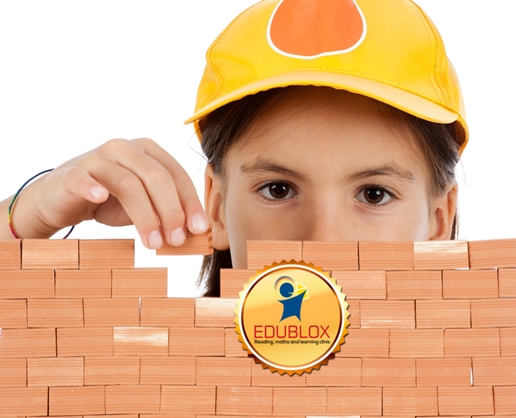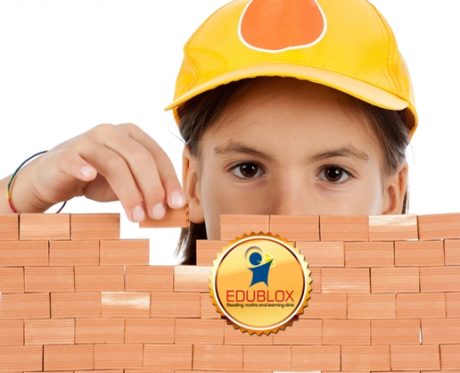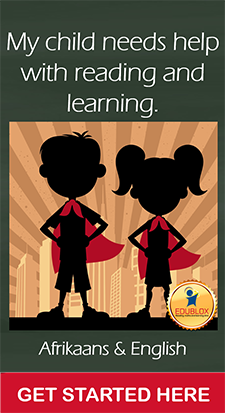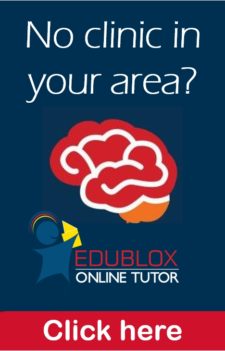
 Summary
Summary
Edublox is an educational method that integrates cognitive training, reading or maths tutoring, and solid learning principles. Edublox assists students in becoming life-long learners and empowers them to realise their highest educational goals. While not a quick fix, Edublox programmes can permanently alleviate the symptoms of learning difficulties and disabilities like dyslexia.
Edublox explained
Learning is like building a house. The first step is to lay a foundation. Without a solid foundation, cracks will soon appear in the walls, and with no foundation, the walls will collapse.
In the same way, one needs to lay a proper foundation before it becomes possible for a child to benefit from a course in reading, writing, and arithmetic. If this foundation is shaky, learning “cracks” will soon appear.
Simply put, Edublox is a system of cognitive exercises aimed at building a solid foundation for learning.
Foundational skills should be distinct from processes, strategies, or techniques. The difference between foundational skills and processes, strategies, or techniques can be explained using the game of basketball. To be a basketball player, a person must first master the foundational skills, e.g., passing, dribbling, defence, and shooting. Only after that can he be taught strategies or techniques.
Edublox develops and automates the foundational skills of reading, spelling, writing, mathematics, and the necessary skills to learn subject matter. A list of the most important foundational skills addressed by Edublox includes:
- Attention and concentration
- Accurate perception
- Visual discrimination of colour, foreground-background, form, size, and position-in-space
- Visual analysis and synthesis of position in space
- Auditory discrimination of foreground-background, and position-in-time and space
- Auditory analysis and synthesis of position-in-time and space
- Decoding and integration of information
- Visual closure
- Imagination
- Visual, auditory, sequential, iconic, short-term, long-term, and working memory
- Reasoning and logical thinking.
.
Edublox also offers application in the form of reading, spelling, vocabulary, and comprehension exercises in our language-based classes and the understanding of terminology, mental arithmetic, word sums, reading time, etc., in our maths-based classes.
Edublox is multisensory
Multisensory instruction is a way of teaching that engages more than one sense at a time.
There is no doubt that a person’s weaker senses can be improved. A blind person, being deprived of sight, usually develops all the other senses to a remarkable degree. To learn to read Braille, they must develop their tactile sense remarkably. This fact is important because it shows, without the help of complicated tests, that every sense can be developed and improved.
By learning to use all his senses, the learner’s ear will eventually come to the aid of his eye and his hand to his ear, thereby opening three channels to his mind instead of only one.
Based on solid learning principles

Another simple and practical example is the fact that one has to learn to count before it becomes possible to learn to add and subtract. Suppose one tried to teach a child, who had not yet learned to count, to add and subtract. This would be quite impossible, and no amount of effort would ever succeed in teaching the child to add and subtract. This shows that counting is a skill that must be mastered before it becomes possible to learn to do calculations.
In the same way, there are also skills and knowledge that a child must have acquired before it becomes possible for them to benefit from a course in reading.
Based on 30+ years of research and practical experience
Over the last 30+ years, Edublox has helped more than 150,000 people in approximately 40 countries to read, learn and achieve through home kits and learning clinics internationally.
It started as a school readiness program with only a few cognitive exercises in 1979. Then, purely as an experiment, in 1980, the program was used for a learning-disabled child who overcame his learning difficulties. Over many years, in a quest to perfect the programme and later programmes, our team has extensively researched learning, learning principles, brain development, and neuroplasticity.
School results define our success. Annually, since 2010, we have been requesting Edublox clients, long-term and new, to complete an online survey to help us measure our performance. In our latest survey, the key question, “Did your child’s academic performance improve at school?” received a 94% positive rating.

The experimental group in Dr. Jaidan Mays from the University of Johannesburg’s study showed an improvement of 1.3 years in visual memory and 1.5 years in visual sequential memory after receiving intensive Edublox training over five days (22.5 hours of training).
Dr. Lee DeLorge in Ohio tested 67 students aged 5 to 18 with ADHD, dyslexia, dyscalculia, and non-specific learning disabilities. The processing speed of 94% of the learners improved significantly:
* 35 ADHD students: 52.45% combined increase (37.24% pre-test avg/89.69% post-test avg);
* 13 dyslexic students: 46.76% combined increase (41.31% pre-test avg/88.07% post-test avg);
* 2 students with dyscalculia: 57.38% combined increase (39.76% pre-test avg/97.14% post-test avg);
* The remaining students were non-specific LD: 64.14% combined increase (30.40% pre-test avg/94.54% post-test avg).
A study at the University of Pretoria by Dr. Wynand de Wet found an increase in non-verbal IQ scores of 11.625 in deaf children after 27.5 hours of Edublox instruction, which was confirmed by our own trials of hearing children: an improvement of 5.6 in verbal IQ and 12.5 in non-verbal IQ after 40 hours of instruction.
.
.







Wat is die verskil tussen Edublox en Audiblox?
Hello Adri Dankie vir jou vraag. Die verskil tussen Audiblox en Edublox is soos die verskil tussen Nokia 1200 en Samsung Galaxy S8 Plus. Nokia 1200 was goed in sy tyd, maar daar is nou baie beter beskikbaar. Die kognitiewe oefeninge in Edublox is beter, die lees- en speloefeninge baie beter, en binnekort word ons rekenaarklasse ook opgegradeer met Edublox Aanlyn Tutor (www.edubloxtutor.com). Daar is ook nou gehaltebeheer — kameras in ons klasse wat die lesse opneem en hulle word dan geevalueer — wat daar nie was met Audiblox nie. Om goeie resultate te hê moet die lesse reg aangebied… Read more »
Ek wil graag gebruik maak van Edublix. How gaan Ek te werk
Goeie dag Betty
Volgens jou IP adres is jy in Keetmanshoop. Is dit korrek? Dan sal jy wil kyk na Edublox Aanlyn Tutor: http://www.edubloxtutor.com Die lees- en speloefening van Edublox Aanlyn is ook beskikbaar in Afrikaans.
Groete
Susan
Goeie môre. hoe gaan ek te werke om aan te sluit of gebruik te maak van edublox?
Hello Megan,
Kontak gerus jou naaste Edublox-tak: https://www.edubloxsa.co.za/contact-us/. Sou daar geen tak in jou omgewing wees nie, kan jy ons aanlynprogram oorweeg: https://www.edubloxtutor.com/ Die lees- en speloefening van ons aanlynprogram is beskikbaar in Afrikaans.
Groete